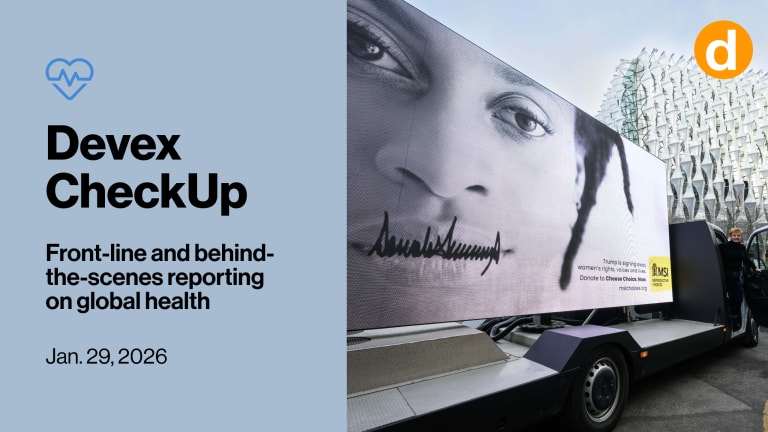Gavi replenishment tops concerns at Global Forum on Childhood Pneumonia

BARCELONA — The need for a successful replenishment of Gavi, the Vaccine Alliance to increase childhood immunization against pneumonia dominated conversations at the Global Forum on Childhood Pneumonia this week.
“We don’t need more declarations. We need a commitment to implement.”
— Margaret Agama-Anyetei, head of health, African Union CommissionOther calls at the gathering in Barcelona included the need for more domestic resources and international development assistance, national commitments to childhood nutrition, and a reduction in air pollution.
Pneumonia, which is caused by viruses, bacteria, or fungi, is an acute respiratory infection that makes it hard to breathe. Each year, more than 800,000 children under 5 die because of pneumonia, and those from low- and middle-income countries are disproportionately affected.
The pneumococcal vaccine — first licenced in the U.S. in 1977 — prevents infections that develop into pneumonia. Through its advance market commitment mechanism, Gavi — which works to improve access to new and underused vaccines — has supported 60 countries in rolling it out, reaching 183 million children by the end of 2018.
“Gavi’s ultimate goal is to ensure children in the developing world have the same access to lifesaving vaccines as children in the West,” said Dr. Seth Berkley, CEO of Gavi, in a statement.
However, the level of its continued work will depend on how generous Gavi’s donors are come June 4 at its replenishment conference in London. The organization hopes to raise $7.4 billion to support its projects between 2021 and 2025.
To date, the U.K. remains the biggest donor but, speaking at the forum, Berkley highlighted the potential of the current political climate to impact the outcome.
“Over the past decade, we have made progress in boosting the number of children receiving lifesaving pneumococcal vaccine, and it is vital that we keep up these efforts to protect the next generation against this deadly disease,” he said. “Gavi’s donor pledging conference in June will offer the international community the chance to help us do so.”
Luk Tombekana Monoja, senior adviser on nutrition at South Sudan’s Ministry of Health, said Gavi wasn’t the answer to everything, though. For example, South Sudan does not qualify for Gavi support in rolling out the pneumococcal vaccine. If other “good Samaritans” and donors don’t step in, children will continue to die, Monoja said. In 2018, pneumonia was responsible for 20% of deaths in children under 5 in South Sudan.
Adequate financing of pneumonia control and treatment was just one of the actions pledged in a global declaration at the forum, which was hosted by nine health and children’s organizations. Developing and implementing national pneumonia control strategies, prioritizing vulnerable populations, accelerating breakthrough innovations, improving access to data to track progress, and strengthening partnerships were among the other pledged actions.
But Margaret Agama-Anyetei, head of health at the African Union Commission, warned: “We don’t want to have a Cinderella disease — a disease that doesn’t find its prince. We don’t need more declarations. We need a commitment to implement.” She urged attendees to transform the conference’s conversations into action.
It is estimated that 9 million children will die from pneumonia over the next decade unless action is taken.
Search for articles
Most Read
- 1
- 2
- 3
- 4
- 5








